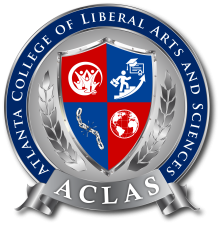Inspirational Journeys
Follow the Stories of Academics and Their Research Expeditions
Cultivating a Culture of Connection: Unlocking Human Potential at Atlanta College of Liberal Arts and Science
In today's rapidly evolving world, organizations are continuously seeking ways to unlock human potential and drive superior performance. Traditionally, many have turned to diversity, equity, and inclusion (DEI) programs in an attempt to foster a more inclusive workplace. However, a growing body of thought suggests that there might be a more effective approach: cultivating a culture of connection. At the Atlanta College of Liberal Arts and Science, we are exploring how this innovative strategy can transform educational and organizational environments alike.
A culture of connection focuses on intentionally developing positive bonds among individuals, thereby enhancing collaboration, cooperation, and engagement. This approach not only aligns with our academic principles but also has the potential to revolutionize how we prepare students for the world beyond college. By fostering an environment where every member feels connected and valued, we can facilitate innovation, better decision-making, and adaptability.
The challenge with traditional DEI programs lies in their potential to emphasize differences rather than commonalities. While these initiatives focus on gender, race, and other demographic factors, there is a risk of inadvertently dividing rather than uniting people. In contrast, a culture of connection transcends demographic differences, focusing on the universal human need for connection, which is crucial for thriving both personally and professionally.
Connection is akin to the secure attachment that children require for healthy development. It makes us smarter, happier, more productive, and more resilient in the face of stress. Conversely, a lack of connection can lead to negative outcomes such as anxiety, depression, and even premature death. In the context of education, this highlights the importance of fostering a connected community where students and staff alike can flourish.
Creating a culture of connection involves meeting seven universal human needs: respect, recognition, belonging, autonomy, personal growth, meaning, and progress. When these needs are fulfilled, individuals feel a strong sense of belonging and connection with those around them, fostering a positive and productive atmosphere.
Leaders play a pivotal role in cultivating this type of culture. At the Atlanta College of Liberal Arts and Science, we emphasize the development of both task excellence and relationship excellence among our faculty and administration. Relationship excellence is achieved when leaders communicate a positive vision, value individuals as unique contributors, and provide a platform for everyone to voice their opinions and ideas.
In conclusion, by shifting focus from DEI programs to cultivating a culture of connection, organizations and educational institutions can unlock the full potential of their members. At Atlanta College of Liberal Arts and Science, we are committed to embracing this approach, ensuring that our community thrives in an environment of mutual support and collaboration. Through this transformation, we prepare our students not only for academic success but also for meaningful and connected lives beyond the classroom.






Leave a Comment